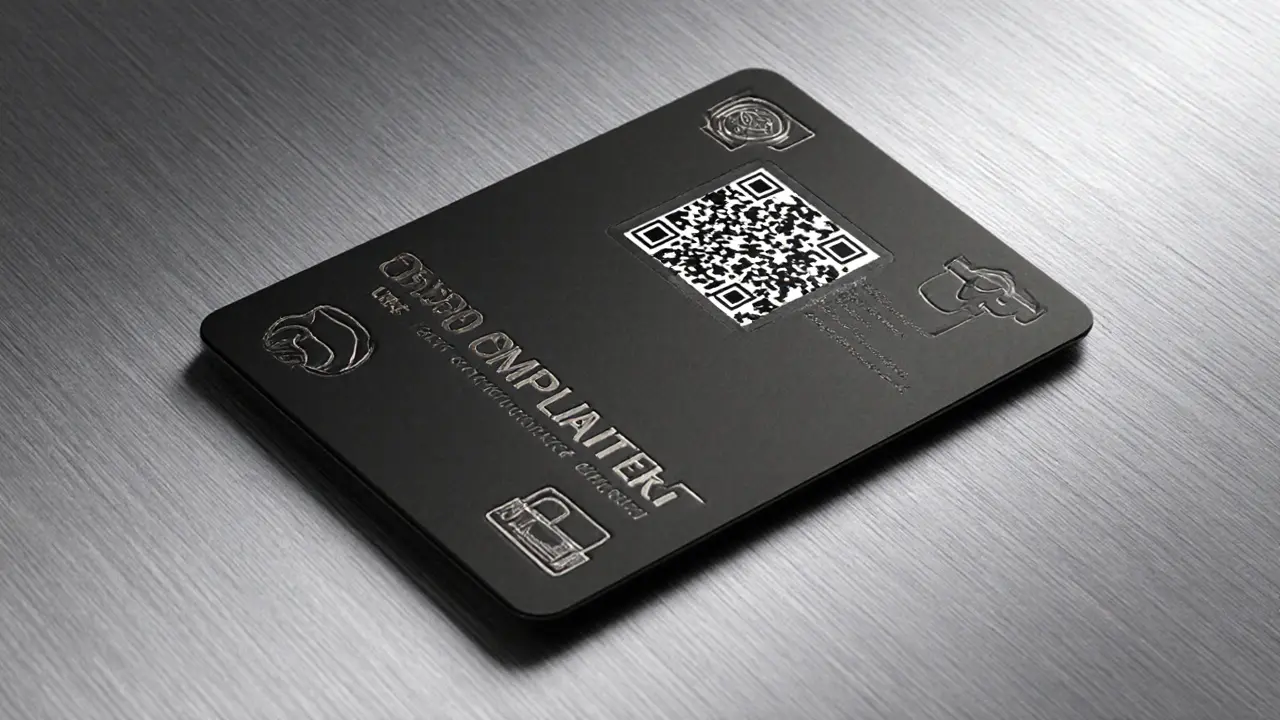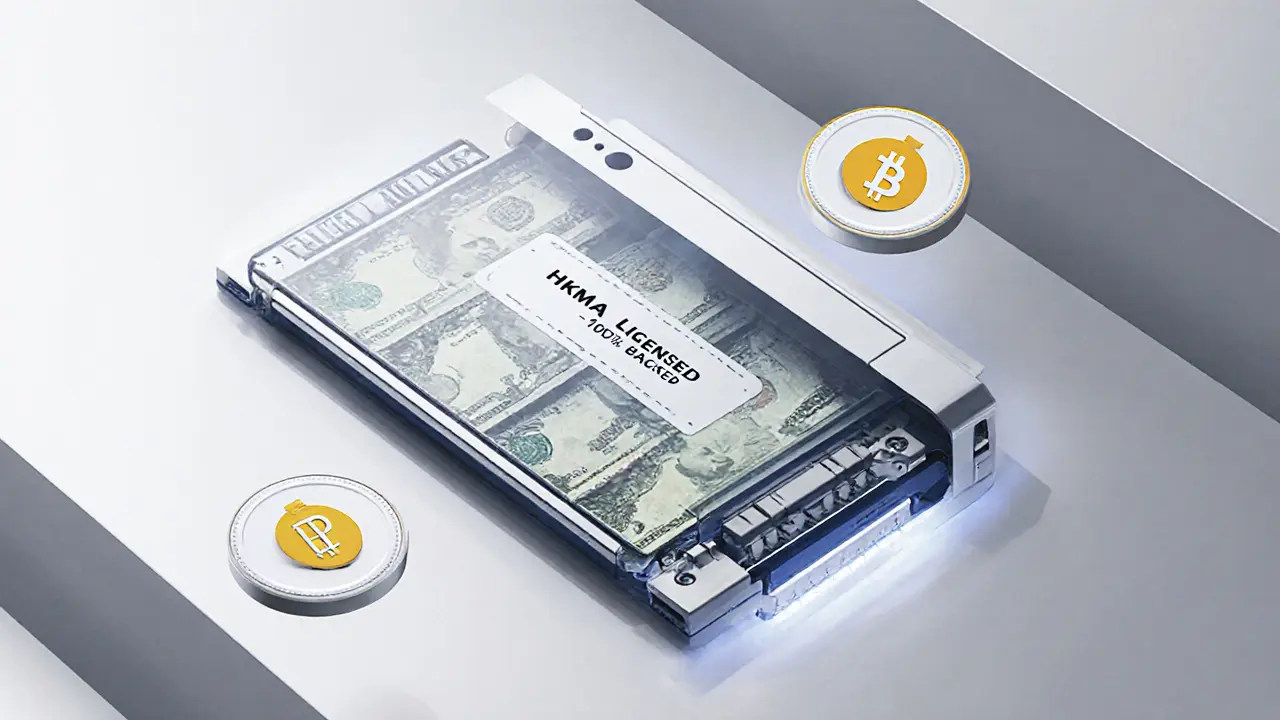Hong Kong Crypto Compliance Checker
Check Stablecoin Compliance
Check Exchange Compliance
Compliance Results
Enter your stablecoin or exchange information to see compliance status.
On August 1, 2025, Hong Kong took a major step in crypto regulation with the Stablecoins Ordinance - the first real law under its broader Virtual Assets Framework. It’s not called the 'Virtual Assets Ordinance 2025' in official documents, but that’s what people in the crypto space are calling it. If you trade, hold, or issue crypto in or targeting Hong Kong, this affects you. And it’s not just about rules - it’s about who can operate, how they must protect your money, and what’s now off-limits.
What Exactly Does the Stablecoins Ordinance Do?
The Stablecoins Ordinance doesn’t cover Bitcoin or Ethereum. It targets one specific thing: fiat-referenced stablecoins. These are tokens like USDT or USDC that claim to be worth exactly $1 because they’re backed by cash or cash equivalents. The law says any company issuing these in Hong Kong - or even just marketing them to Hong Kong users - must get a license from the Hong Kong Monetary Authority (HKMA).
To qualify, the issuer must:
- Hold reserves that are 100% backed by low-risk assets like U.S. Treasuries or cash deposits at regulated banks
- Prove they can redeem every token for real money within 24 hours
- Submit monthly audits by a licensed accountant
- Only issue stablecoins that are clearly labeled as ‘fiat-referenced’ - no vague names like ‘GlobalCoin’
That’s it for now. Other tokens - like Bitcoin, NFTs, or utility tokens - aren’t covered by this law. But don’t get fooled. That doesn’t mean they’re unregulated. Separate rules are coming for trading and custody services in 2026.
Who Needs a VA Dealing or Custody License?
Starting in Q2 2026, any company that lets people buy, sell, or store crypto in Hong Kong needs a license from the Securities and Futures Commission (SFC). This includes:
- Exchanges like OKX or Bybit if they serve Hong Kong users
- Wallet providers that hold private keys for customers
- Any platform that advises on crypto investments
Here’s what they have to do to get licensed:
- Hold at least HK$129,730 (about $16,600 USD) in capital - not a huge amount, but enough to filter out fly-by-night operators
- Have at least one responsible officer with three years of crypto portfolio experience
- Implement dual approval for every wallet whitelist change - meaning two people must sign off before a new address can receive funds
- Only let users trade on exchanges approved by the SFC - currently limited to Hong Kong, U.S., U.K., Dubai, and Japan
- Run 24/7 monitoring of all client portfolios
These rules are strict. And they’re designed to stop fraud, not just punish it after the fact. If a firm breaks these rules, the penalty isn’t a fine - it’s up to HK$5 million and seven years in prison.
What’s Excluded - And Why It Matters
The law is careful about what it doesn’t cover. Tokens that are:
- Used only within a closed ecosystem (like game tokens)
- Representing securities (already regulated by the SFC)
- Stored value cards (like Octopus cards)
- Bank deposits or central bank digital currencies
These are explicitly excluded. That’s actually a win for clarity. Before this, companies wasted months guessing if they fell under regulation. Now, if your token fits one of these categories, you’re off the hook - for now. But experts warn this creates loopholes. Someone could design a token that looks like a game item but functions like a stablecoin. The regulators know this. They’re watching.

How This Compares to Other Countries
Compared to the U.S., where the SEC, CFTC, and state agencies all claim authority over crypto, Hong Kong’s system is clean. One regulator for trading (SFC), one for banking-related services (HKMA). No confusion. No overlap - in theory.
Singapore’s Payment Services Act covers stablecoins too, but it’s part of a broader payments law. Hong Kong’s approach is more surgical: one law for stablecoins, another for trading. That’s why 78% of Asian crypto firms surveyed in July 2025 said they preferred Hong Kong’s phased rollout.
Switzerland lets crypto firms operate with lighter rules. But Hong Kong isn’t trying to be the cheapest. It’s trying to be the most trusted. That’s why institutional investors - hedge funds, asset managers, family offices - are moving in. There are now 42 SFC-licensed crypto fund managers in Hong Kong, up from 27 at the end of 2024.
What This Means for You as a Crypto User
If you’re a retail investor in Hong Kong, here’s what you’ll notice:
- You can’t just sign up for any exchange. Only licensed ones are allowed to market to you.
- Before you can trade, the platform must ask if you understand crypto risks. They’ll quiz you on how blockchain works, how wallets function, and what volatility means.
- Your stablecoins? They’ll be issued only by licensed providers. If you hold USDT, make sure it’s from a Hong Kong-licensed issuer.
- Withdrawals might take longer. The dual approval system adds steps - even if you’re just sending crypto to your own wallet.
For most users, this means less choice - but more safety. If your exchange crashes or disappears, your assets are more likely to be protected.

The Hidden Costs - And Who’s Struggling
It’s not all smooth sailing. Smaller firms are feeling the pressure. The dual approval system for wallet whitelisting has increased transaction processing time by 30-40%, according to Sumsub’s July 2025 survey. That’s a big deal for high-frequency traders or DeFi protocols that rely on fast on-chain actions.
And then there’s the 24/7 supervision requirement. One Hong Kong-based crypto fund manager told me: “We hired a third shift just to monitor wallets. It’s not just expensive - it’s exhausting.”
Twelve crypto firms delayed their Hong Kong launch because they couldn’t meet the cybersecurity standards. They needed to implement multi-signature wallets, cold storage, and real-time blockchain analytics - tools like Chainalysis that cost tens of thousands per year.
But here’s the twist: those same firms that struggled? Most of them are now thriving. The ones that made the investment report a 40% increase in institutional clients since January 2025.
What’s Coming Next
The Stablecoins Ordinance is just the beginning. By December 15, 2025, the SFC will release detailed rules on what counts as a “qualified reserve” for stablecoins. Will it be only U.S. Treasuries? What about short-term corporate bonds? That’s still up in the air.
In Q2 2026, the HKMA will launch a sandbox for cross-border stablecoin transfers. Big banks like HSBC and Standard Chartered will test sending USDC between Hong Kong and Singapore - a first for Asia.
And by 2027, expect NFTs to be on the table. The FSTB has already signaled they’ll review how to regulate them - especially those tied to real estate or art.
Right now, the market is shifting fast. Institutional crypto assets in Hong Kong grew 32% year-over-year in 2025. Retail participation? Still under 20%. That’s intentional. Hong Kong isn’t trying to become the next Binance. It’s trying to become the next Swiss private bank - but for digital assets.
What You Should Do Now
If you’re a Hong Kong resident:
- Check if your exchange is on the SFC’s licensed list. Don’t assume it’s safe just because it’s popular.
- If you hold stablecoins, verify the issuer’s license status on the HKMA website.
- Don’t ignore the knowledge check. It’s not a formality - it’s a filter to protect you from risky bets.
If you run a crypto business:
- Start the licensing process now. The SFC says they aim to process applications in 120 days - but early adopters took 6 months.
- Build your dual approval system. Use multi-signature wallets - 82% of compliant firms already have.
- Train your team on AMLO (Anti-Money Laundering Ordinance). It’s not optional.
The clock is ticking. The window to adapt is closing. Hong Kong isn’t shutting down crypto. It’s cleaning it up. And if you’re serious about crypto in Asia, you’ll want to be on the right side of this law - not fighting it.
Is the Virtual Assets Ordinance 2025 a single law?
No. It’s a common nickname for Hong Kong’s broader 2025 crypto regulatory framework. The only actual law in effect as of August 2025 is the Stablecoins Ordinance. The licensing rules for trading and custody are still in consultation and will take effect in 2026.
Can I still use USDT or USDC in Hong Kong?
Yes - but only if they’re issued by a licensed stablecoin provider. Unlicensed issuers are banned from marketing to Hong Kong users. Check the HKMA’s public list of licensed issuers before holding or transacting with any stablecoin.
Do I need a license if I just buy crypto as a personal investor?
No. The licensing rules apply to businesses - exchanges, custodians, issuers. As a retail user, you don’t need a license. But you must use only licensed platforms, and you’ll be asked to prove you understand the risks before trading.
What happens if I use an unlicensed exchange?
You won’t be arrested - but your funds could be at risk. Unlicensed platforms have no legal obligation to protect your assets, and they may be shut down without warning. Hong Kong authorities will also block access to these sites. It’s not illegal to use them, but it’s extremely risky.
Will this law stop crypto innovation in Hong Kong?
Not if you’re serious. The framework is designed to attract institutional capital, not ban innovation. In fact, 11 tokenized real-world asset funds launched in Q3 2025 alone, totaling $2.3 billion. The rules are strict, but they’ve created trust - and trust attracts money.

